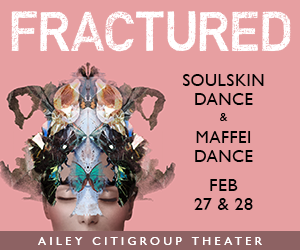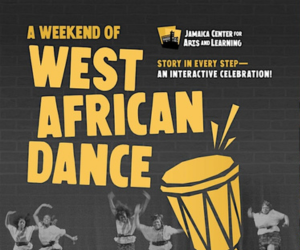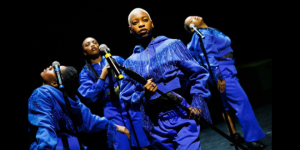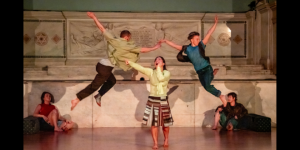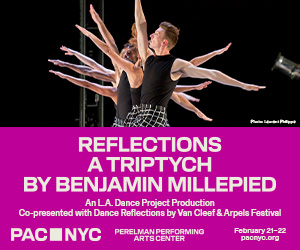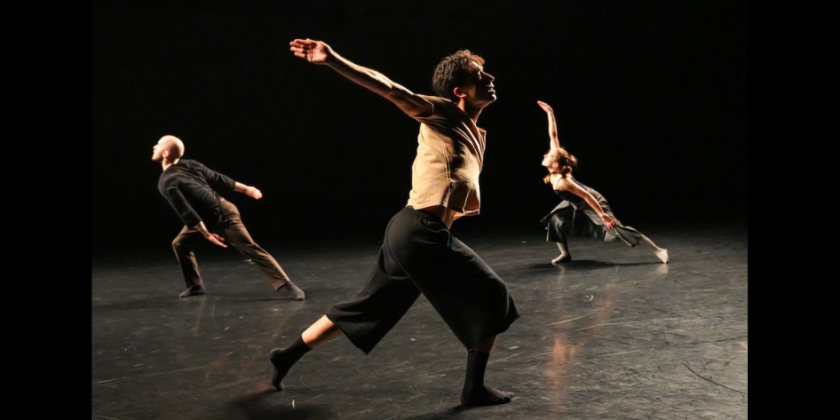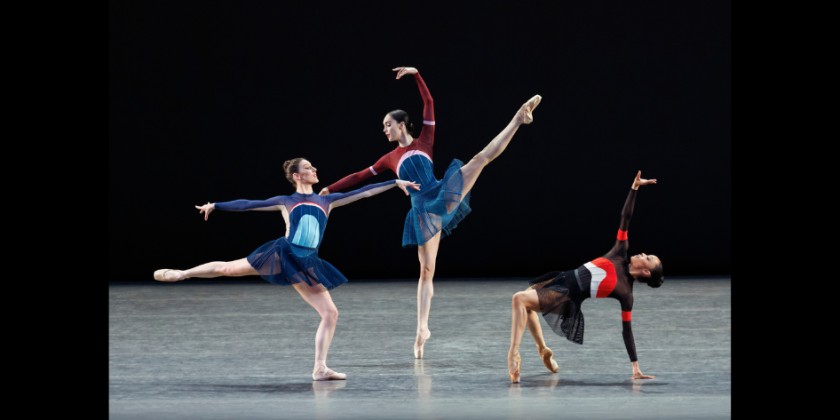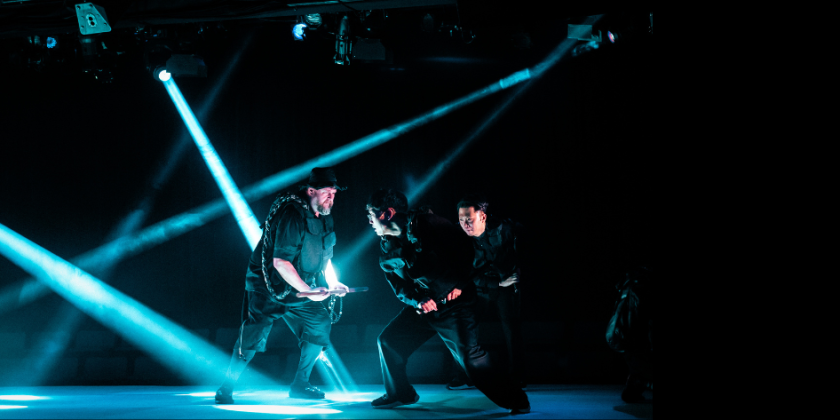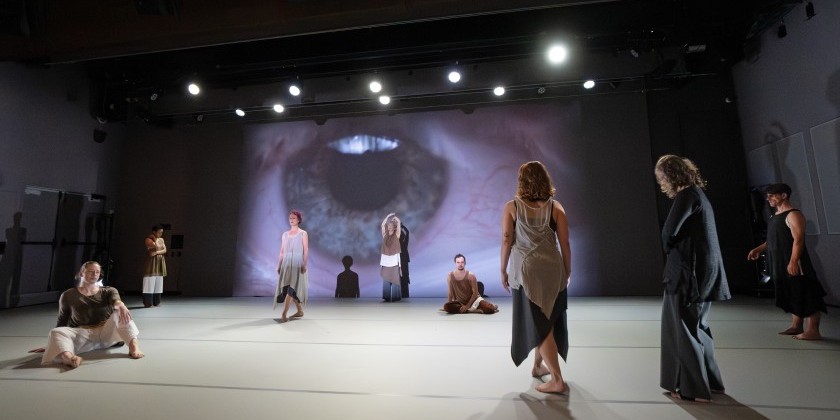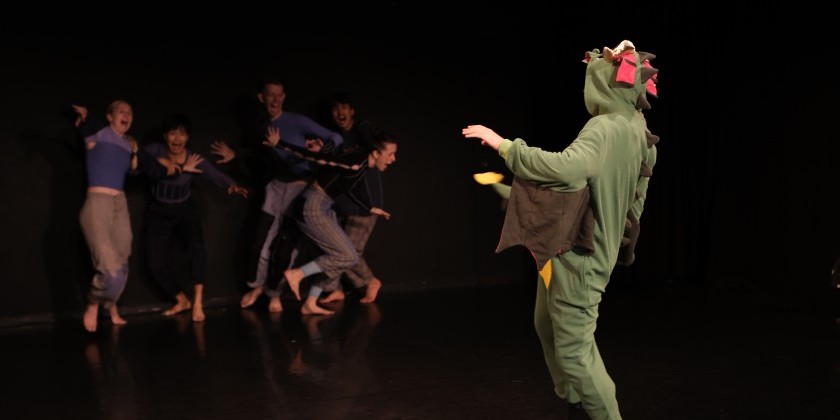IMPRESSIONS: Wanjiru Kamuyu's "Fragmented Shadows" at New York Live Arts
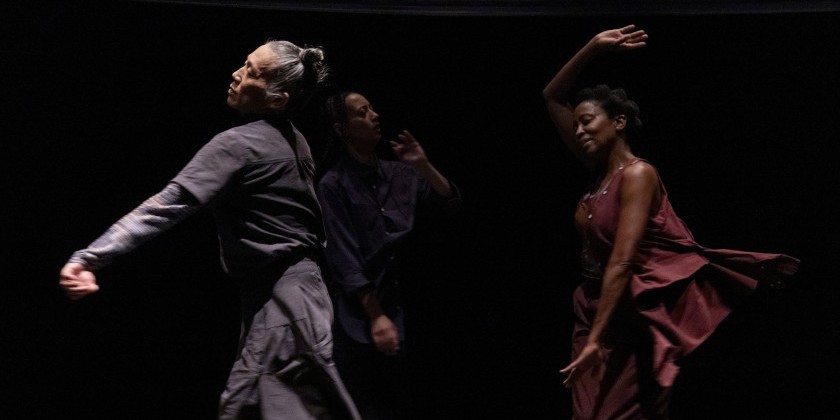
Presented as Part of L’Alliance New York’s Crossing the Line Festival
L’ Alliance New York’s Crossing the Line Festival and New York Live Arts present Fragmented Shadows
Choreography: Wanjiru Kamuyu in collaboration with Sherwood Chen and Elodie Paul
Performers: Sherwood Chen, Wanjiru Kamuyu, Elodie Paul
Original Music: LACRYMOBOY
Costume & Set Design: Birgit Neppl
Lighting Design: Cyril Mulon
Artistic Associate: David Gaulein-Stef
New York Live Arts
October 15 - 17, 2025
Kenyan-French choreographer Wanjiru Kamuyu enters states of enveloping and altered consciousness in Fragmented Shadows, performed with fellow travelers Sherwood Chen and Elodie Paul at New York Live Arts. Presented as part of L’Alliance New York’s Crossing the Line Festival, the one-hour work unfolds as a series of transformations gesturing toward personal liberation and release, and evoking an internal journey of empowerment.
The dancers primarily follow separate orbits, occasionally intersecting, each telling their own, expressive movement story. At times they appear as unidentified, preternatural creatures — perhaps cyborgs, perhaps prey, perhaps predators. Then, they shift again. They never collide, but redistribute themselves across the stage, drawn together and repelled by unseen, magnetic currents. They whirl like dervishes, casting traces of kinetic energy. The darkness on stage often requires the viewer to follow faint outlines: a cheekbone, or a torso briefly caught by the light. All are bound by the demanding, absorbing world the performers inhabit. Though primarily high in intensity, the mood occasionally softens. Sometimes a mysterious quiet is punctuated by breath.
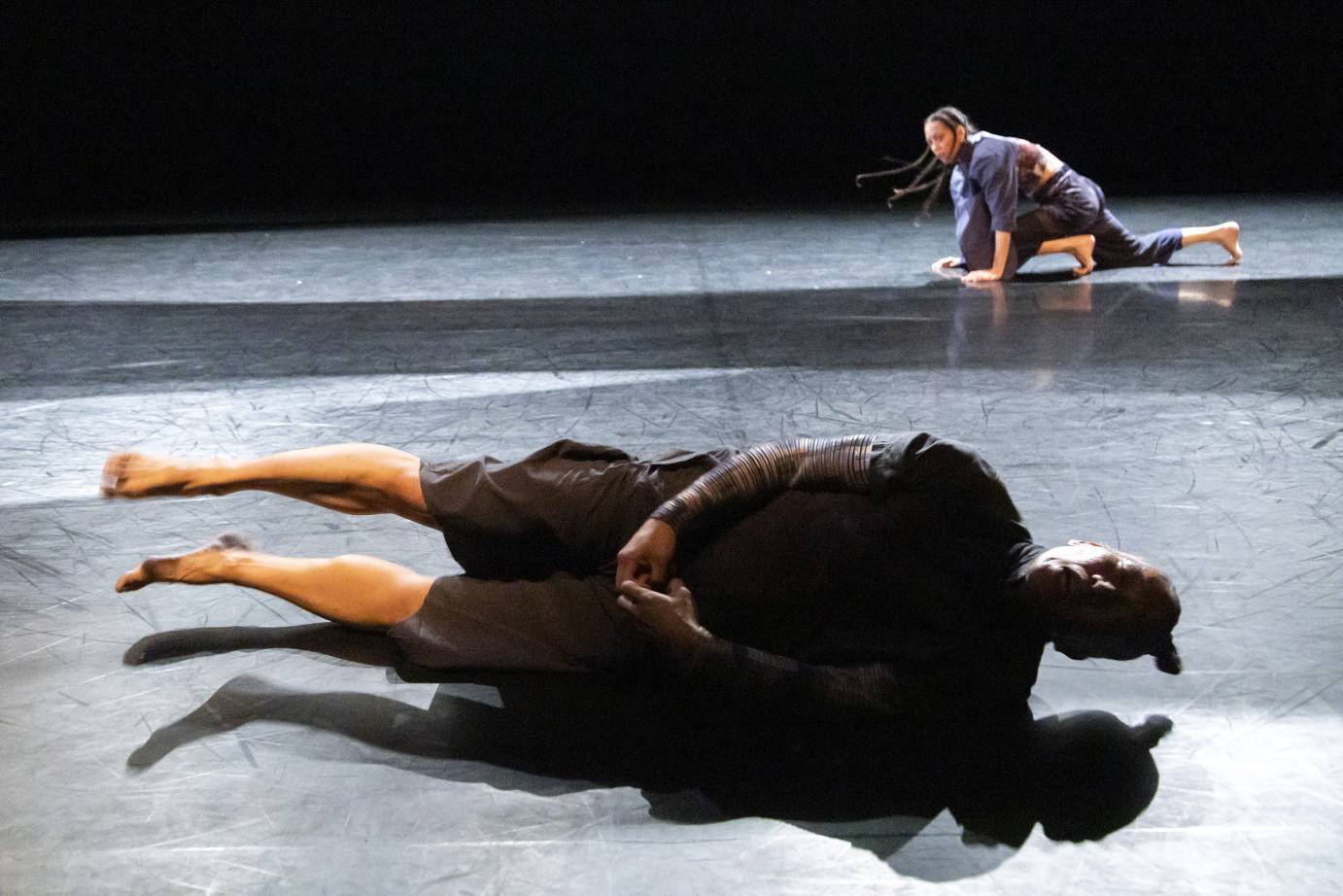
The work opens to a male voice singing, “(I) try to remember just what guided me today,” a purposeful choice by the choreographer as Chen crouches, comforting himself with the palms of his hands pressed to the side of his head. To the electronic sound of pebbles falling on tin, he exhales, reaches to the sky, and pounds the floor with his foot. Chen’s every gesture is charged with intention, drawing the viewer into the work’s emotional and physical terrain. Kamuyu and Paul move alongside him, fully present and committed, forming a tightly unified trio in which no performer dominates. They lie next to one another on their stomachs arching their upper bodies sphinxlike before the lights go out.
The layered soundscape, composed by LACRYMOBOY, blends natural and mechanical sounds with scratchy, grating, techno-like textures. Moans, plucked strings, and a ringing bell heighten the ominous atmosphere. Cyril Mulon’s masterful lighting passes from faint orange dawn to starlit night, guiding the dance through shifting intensities of illumination and shadow. A strip of light along the edge of the stage momentarily startles before blinking out.
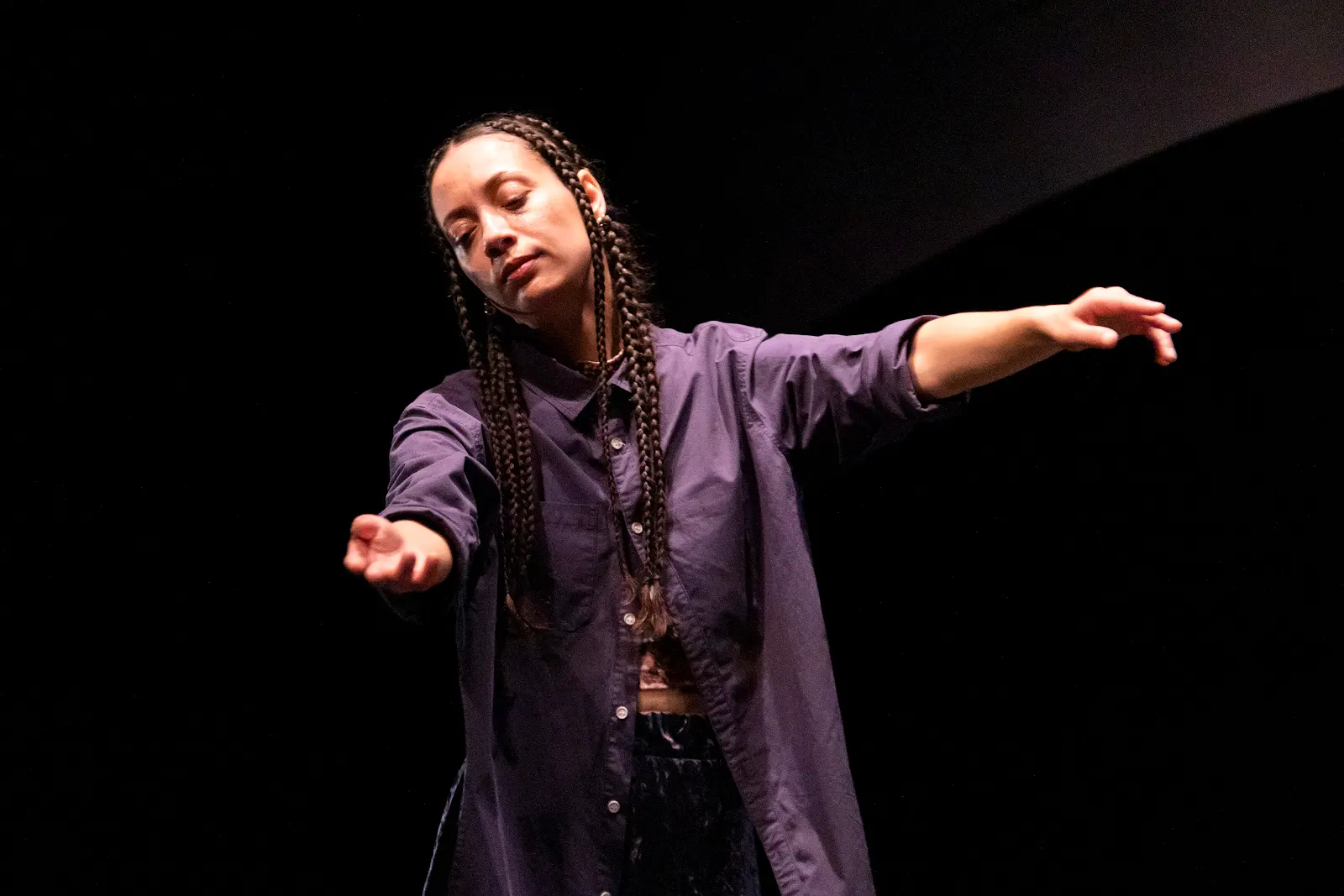
Kamuyu’s presence commands attention. Seated with feet grounded, her spine curves and her facial expressions verge on the feral. Her eyes roll back, mouth opening in a silent, nearly rabid, howl. In contrast, Paul’s solo stands out for its fluid inventiveness. An elegant and luminous dancer, she stretches her arms and makes them circle, toss, and gather over small, continuous hops. She shifts side to side, spirals, and performs a rhythmic “floor-walking” pattern — foot, foot, hand, hand — that anchors her to the stage. Long braids spiral around her body, accentuating each turn and undulation, the movement flowing through her.
Kamuyu again takes over the stage flicking her hands, flinging her limbs, and delivering powerful kicks, as if she were possessed. She speaks in an unknown language, while Chen and Paul stand quietly, both observing her and, through their watchfulness, acting as her protectors. The drums grow louder and more intense, carrying the dance into heightened states of awareness.
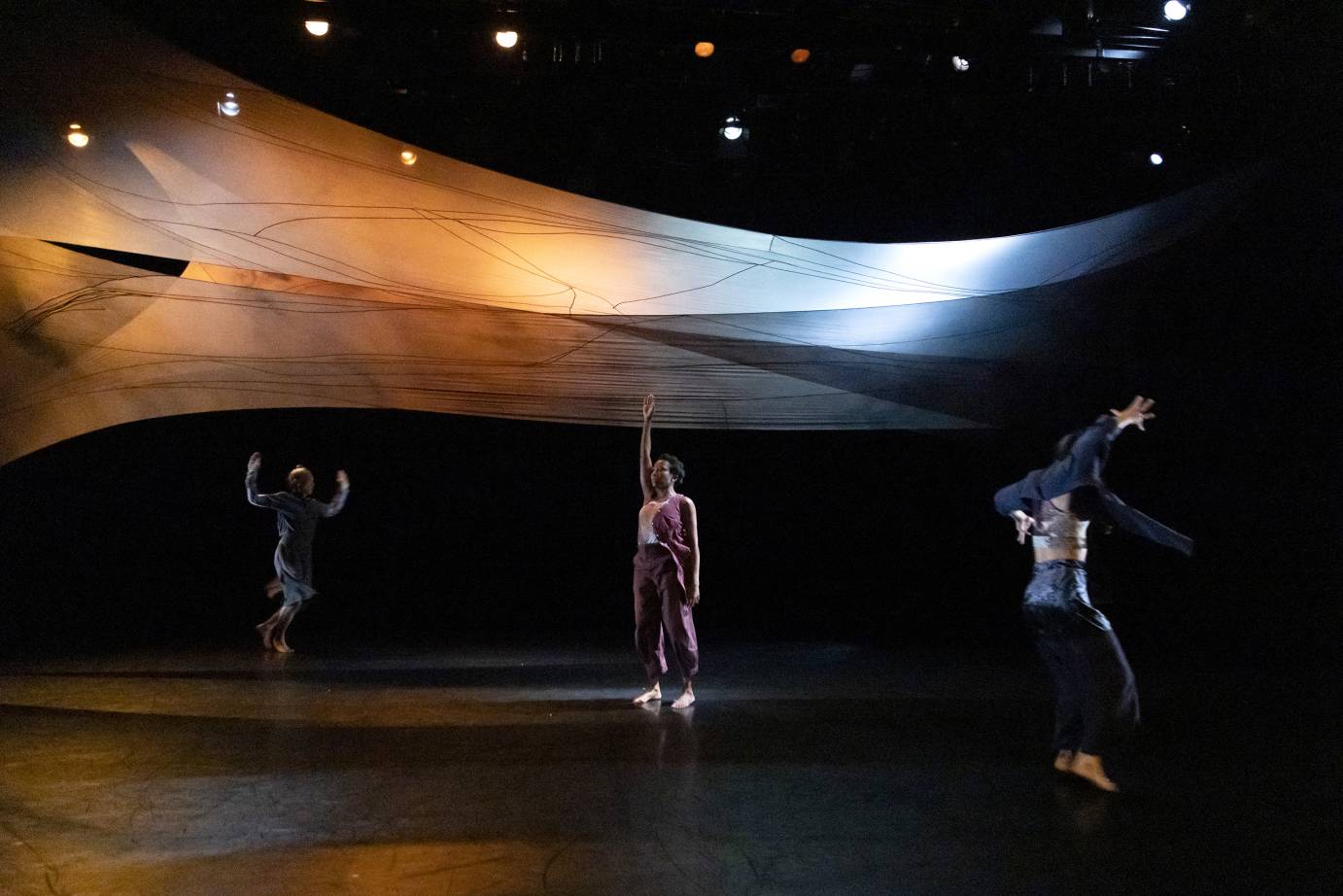
Designed by the inventive Birgit Neppl, the costumes are repurposed garments fashioned into striking hybrids. Kamuyu wears a half a button-down shirt gathered at the waist; Paul, a backless, button-down shirt over a shiny fabric panel; and Chen, a form-fitting gray polo over the pattern of a long-sleeved shirt with loose gray skirt-like pants. The garments mirror the dancers’ physicality - their gestures and bodily contours. They complement the stretched, helix-like set (also by Neppl) held aloft by tendrils reaching to the stage sides, and forming a protective canopy. Beneath this set, the three dancers move across the “forest floor” of the stage, creeping, spiraling, and twitching through dim spaces, their bodies in constant dialogue with the architecture.
Signaling the end of the dance, light shines through the set. Each dancer revolves at different speeds to a droning sound, swirling past and around one another in widening orbits, revolving endlessly until the whole dance seems to turn in on its own axis before coming to rest. The image evokes the night sky in motion — the performers are like stars shooting through a vast cosmos.
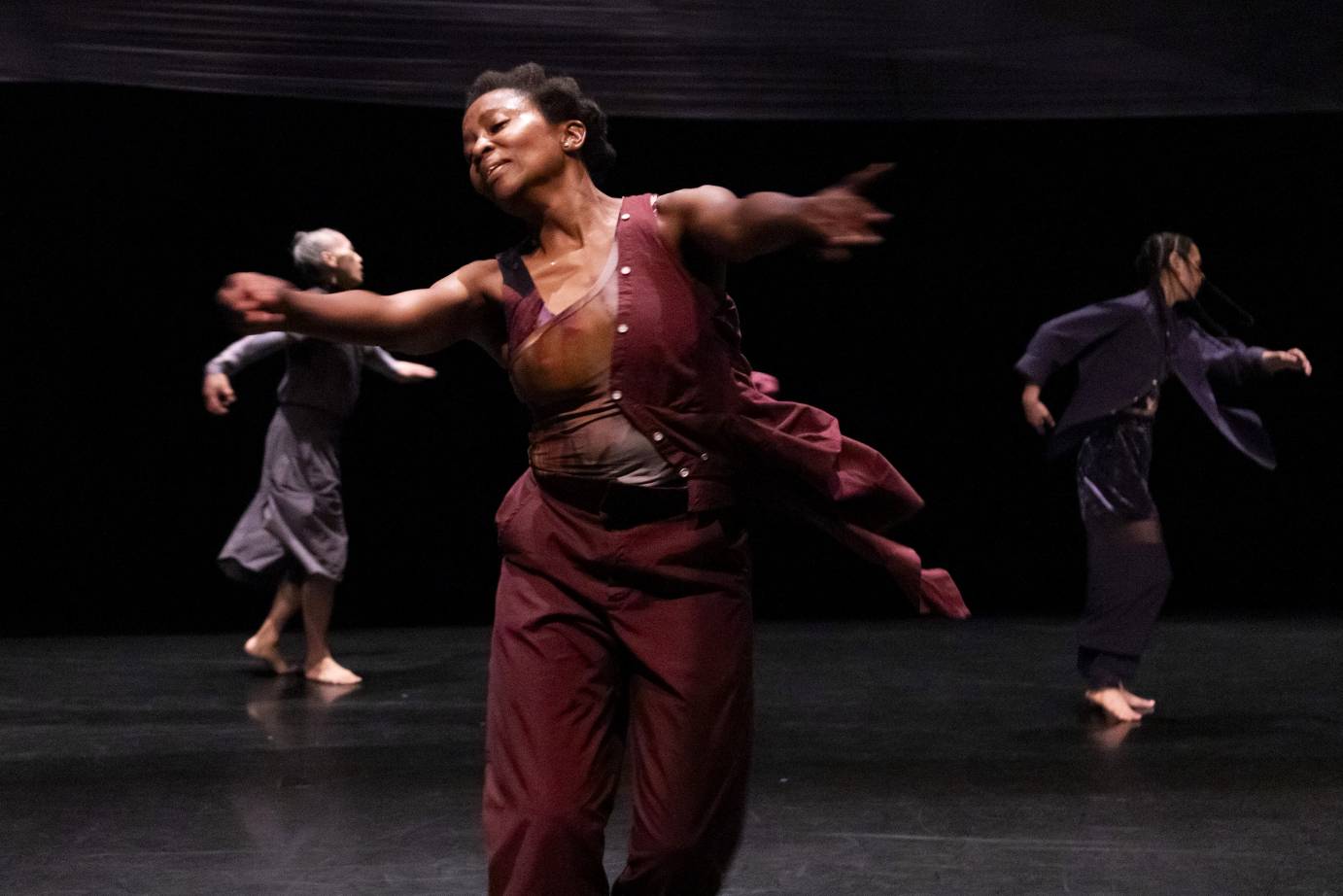
Throughout the performance, the performers rarely touch. They reach toward one another but never clasp, or offer succor. At times, they join forces in unison, but largely they fend for themselves. During the bows, however, the dancers wrap their arms around one another, smiling broadly, breathing deeply, and perhaps invisibly embracing the journeys they have taken, reaching places unknown. This warmth, absent during the performance, felt revealing.
Fragmented Shadows requires patience and trust. It pulls the audience into its gravitational center, encompassing and holding us within an experience that binds performers and viewers alike. Transformative, it invites us to surrender to an immersion in movement, breath, light, and sound. It offers a somatic opening toward something unnamed yet profoundly felt.





